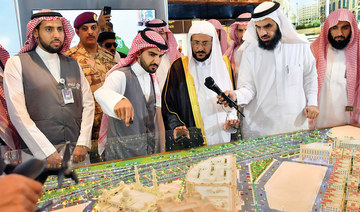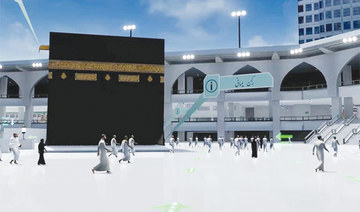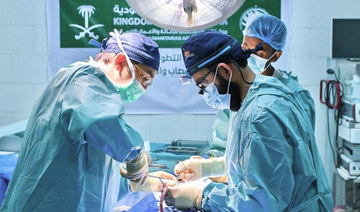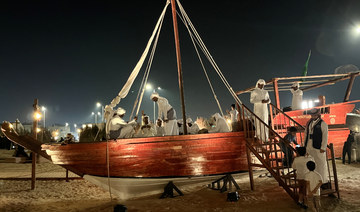RIYADH: The Heritage Commission on Monday hosted a workshop on archaeological surveying and excavation to discuss survey and excavation projects with partners from universities, organizations and government agencies.
The workshop in Riyadh included a presentation of the annual report of exploration projects and discussion of future survey and excavation plans.
Abdullah Al-Zahrani, director general of the antiquities sector at the commission, told Arab News: “This workshop aims to introduce our archaeological fieldwork conducted in Saudi Arabia over the past year and the beginning of this year. We hope to gain knowledge about the latest results and discoveries from our archaeological endeavors in Saudi Arabia by the end.”
He added: “The Heritage Commission is now collaborating with various Saudi universities, including King Saud University, as well as other Saudi colleges and commissions specializing in archaeology. We’d like to thank all our partners for their excellent work at archaeological sites, collaborating with the Heritage Commission to share knowledge and the results of Saudi Arabia’s history.”
The Heritage Commission’s 2030 Archaeological Survey and Excavation Projects Plan was developed collaboratively with national and international universities, as part of its cooperation with entities such as the King Abdulaziz Foundation for Research and Archives, the Royal Commission for AlUla, the Diriyah Gate Development Authority, the Jeddah Historic District Program, regional development authorities, royal reserves, the NEOM project, the Red Sea project, and others.
According to the presentation, 72 scientific initiatives marked the culmination of the Heritage Commission’s surveying and archaeological excavation work.
In 2023, 1,556 archaeological sites were registered in the National Register of Antiquities. Additionally, 1,900 stone structures were documented across the Kingdom, discovered in diverse locations, sizes and shapes. Moreover, 7,600 rock facades were recorded, documenting those featuring drawings and inscriptions.
Paola Pesaresi, senior director of heritage management at the Diriyah Gate Development Authority, expressed her admiration for the commission’s work.
“The Heritage Commission is doing wonderful work. I have been extremely astonished by the various presentations, gaining insight into the national level endeavors. The Kingdom is unveiling its history from north to south, and we are just one part of this ecosystem, which is remarkable. With support, cooperation, collaboration, and working together, the Heritage Commission plays a huge role in this.”
Pesaresi added: “Heritage is mentioned in its own word because it represents wealth for future generations; we are handing it down from our forefathers to the future, and this is our job.
“It is a legacy that will help people comprehend both their past and their present. And find their way in the future. That’s why it’s such a vital aspect of our work. And this country is growing rapidly.
“But,” she said, “we must ensure that we do not lose anything in the process, as this is the property of future generations, not our own.”


























